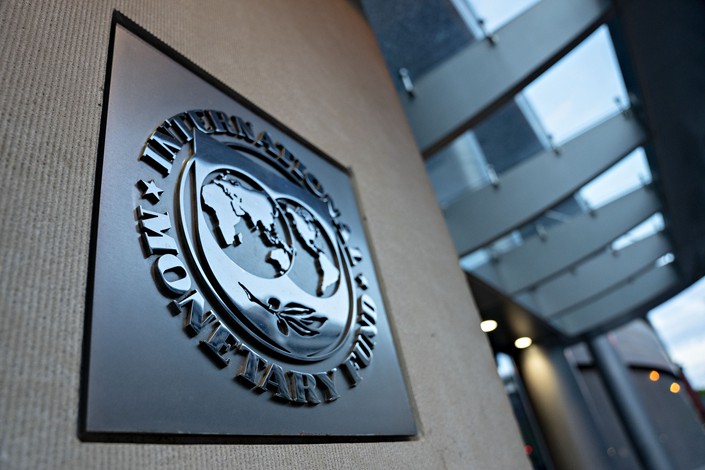Three rules for managing during economic downturns

By Rama Velamuri
The world has seen many recessions, some of them very deep, such as the one in 2008 caused by the crisis in the banking and financial services industry. There are predictions coming from organisations such as the IMF that the crisis caused by the COVID-19 pandemic could be even worse than the 2008 one. In this situation, how can entrepreneurs and company managers think about navigating through the economic storm?
Recessions are characterised by sharp drops in demand (in some highly cyclical industries, it is not unusual to see demand collapse by 50%-70%), sharp increases in receivables due to customer distress (especially in B2B industries where customers delay payments and sometimes stop paying altogether, often because their customers are doing the same), and inventory build-up – all of which lead to debt build-up, which in turn leads to higher interest expenses. As a result of this combination of negative factors, many companies suffer significant losses.
It is not at all easy managing in such situations. Managers must prepare for pressure from many different stakeholder groups. Based on the experiences of past recessions, we can define certain rules of thumb.
Reduce costs, without reducing capabilities
During periods of economic growth, companies typically become lax about controlling costs. In the euphoria of good times, bad habits creep in, in the form of unnecessary travel, unnecessary entertainment expenses, less-than-sound investment decisions, and poorly thought through diversification initiatives. An economic downturn is a good time to revisit all these points. I believe that every organisation can save 10-15% of their costs without making deep structural changes and without large scale layoffs. Laying off people on a large scale should be avoided as much as possible, because with the loss of people, capabilities are lost too, which leaves organisations poorly prepared for the economic rebound – something which will happen sooner or later. If human resource costs need to be cut, the pain can be distributed across the workforce. As a rule, the highest earners should take the biggest percentage cuts and the lowest earners the lowest. Managers, by practicing what they preach, can signal trust to the entire workforce. The crisis can thus be a great opportunity to strengthen the bonds between the workforce and the organisation.
If the organisation has recently undertaken unrelated product diversification initiatives, which require further investments and are not yet generating cash flow, managers can think about putting these on the back burner without necessarily cancelling them. A downturn requires managers to focus on survival first and prioritise activities that can generate cash flow. Geographic diversification is a different matter. If your existing range of products can be exported to markets that you have not explored to date and that may not be as badly affected by the economic downturn, then you can contact distributors in these markets to generate much needed sales.
There are certain key areas, such as product development for existing markets, where cutbacks should be avoided. This is because you want your organisation to be in pole position when there is an economic recovery.
Focus on cash generation
There must be a dedicated team chasing payments from customers. Past experience tells us that customers do pay from time to time, but they may not be able to settle all the outstanding dues of all their suppliers at once. They may end up making partial payments because they need continued supplies. In these circumstances, if you do not ask insistently, you will not get paid.
Try to sell your inventories, even if you have to discount your prices, particularly to new customers in new geographic markets. During these times, cash flow should take priority over profitability. You can offer generous discounts for up-front payments (i.e., no credit).
If your company owns assets (such as buildings) and you are under enormous cash flow pressure, you may think about selling the assets and leasing them back. If you have business units that do not have strong synergies with your mainstream business, you may decide to sell them to generate much needed cash, although in a downturn your price realisation may be significantly lower.
Communicate proactively with your stakeholders
Be positive and convey that you will support them. With employees, I have found that bad news is more bearable than uncertainty caused by lack of communication. Thus, if you feel that a salary reduction is unavoidable, communicate it clearly and sincerely and explain the reasons why it is necessary. As mentioned earlier, try to be equitable and make sure that the pain is spread across the organisation. Keep in touch with your customers and try to understand how you can serve them better in these difficult times. Any initiatives you can take that can help them reduce costs and generate revenues will be welcomed by them. You may also need to delay payments to your suppliers. Communicate with them the reasons for the delay and reassure them that you will pay the outstanding dues. Many companies underestimate the importance of suppliers, who are important sources of technology, market intelligence and trade credit. It is as important to maintain supplier relationships as it is to maintain customer and employee relationships.
In summary, managing during economic downturns is not pleasant but it is an integral part of a manager’s job. By being practical and courageous in your decision making and straightforward in your communication with your stakeholders, you can weather the storm and be prepared for the next burst of economic growth.
This article originally appeared on Caixin Global here.













